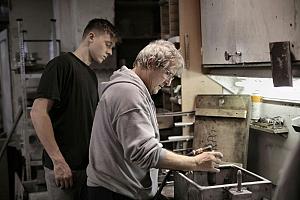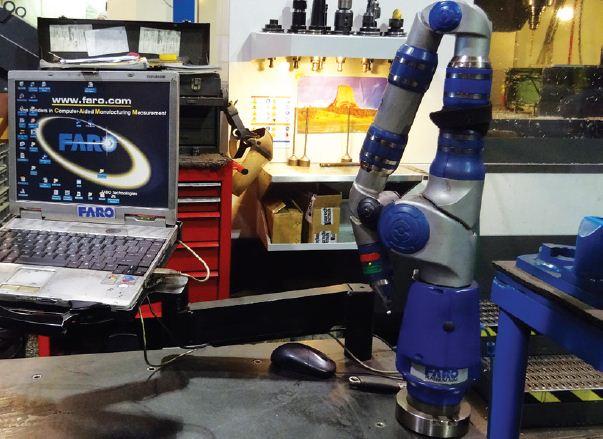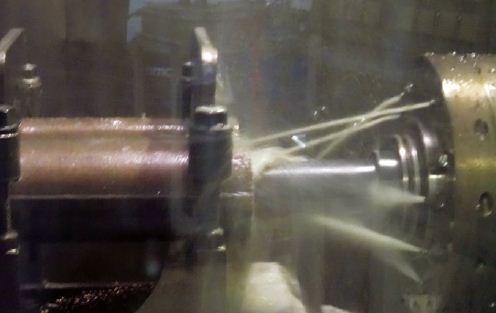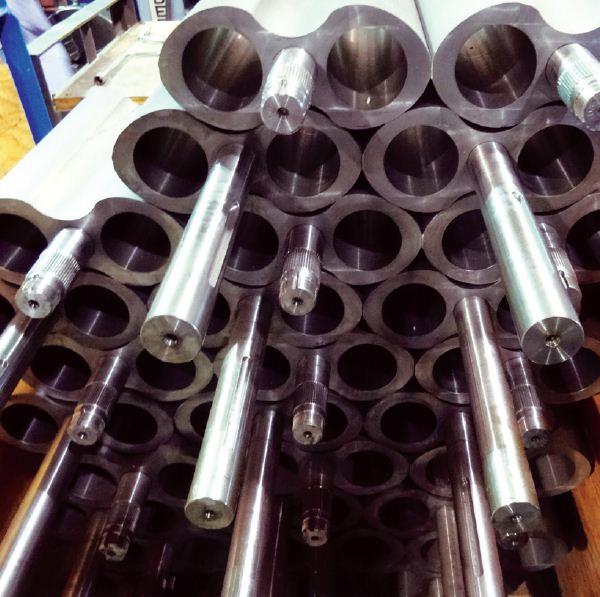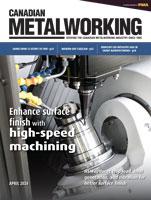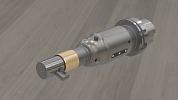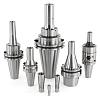- FMA
- The Fabricator
- FABTECH
- Canadian Metalworking
Business Profile: Walinga Machining Division
Growing Up on the Prairies
- By Doug Picklyk
- September 14, 2015
- Article
- Metalworking
The farm town of Carman, Manitoba, located about an hour southwest of Winnipeg, is home to the machining division of Walinga, an Ontario-based company that specializes in sophisticated hauling trucks and trailers and air-driven grain moving equipment. The machine shop is dedicated to manufacturing blower systems, airlocks, shafts, and many other parts for Walinga products, but with its well-equipped shop floor and unique capabilities—along with its highly-tuned workforce—the division is also growing its contract machining business for other local industries.
Last year the Walinga brand celebrated its 60th anniversary. Founded in 1954, the family-owned business now spans three generations and continues to build upon its strong family values.
Headquartered in Guelph, Ontario, the company began by designing and building specialized transportation equipment, and that product category continues to be a driving force for the business. Its earliest products included handcrafted wooden truck bodies for local companies in Fergus, Ontario (a small community 20 km from Guelph).
The business was initially formed as a partnership between Case (Cornelius) Walinga and his son-in-law John Medemblik. The two were later joined by another Walinga son-in-law, Robert (Bob) Lodder. In 1965 the company moved to its current Guelph location, and in 1969 Case Walinga retired, with Medemblik and Lodder taking over as co-owners.
Today the entire Walinga organization employs over 280 people with five locations and three divisions (Engineered Transportation Systems, Pneumatic Conveying Systems and its Machining Division).
The company’s commitment to delivering the highest quality products possible led to the development of the machining division, which allows Walinga to design, refine and maintain the quality control of its manufactured components.
The machining operation was originally launched in 1981, and development of the division really took off in 1996 when Cor Lodder, son of Bob, moved his family to Carman to manage and expand the operation.
Lodder, who was mentored by both his father and uncle, grew up in the business. He started full-time in 1977 working in the Guelph shop. As he recalls, he was welding on a feed tanker at the shop when he was approached by his father and uncle: “I flipped my helmet up and there they were, and they said to me, ‘Do you want to go back to college and become a machinist? We want to start a machine shop, and we think you’re the one for it.’”
He jumped at the opportunity, and in the fall of 1981 started up the machine shop and going to school—receiving his journeyman machinist ticket from Conestoga College in 1984.
Lodder arrived in Carman with six employees to join what was at the time a sales and service division the company has established five years earlier. The move was partly motivated because they were getting their castings from Manitoba, so it made sense to move closer, and it also gave the company an opportunity to further expand in the West.
Today, almost 20 years later, the machining division employs 46 full time employees and about eight part-time, and the operation occupies two buildings with a large yard for storage.
Services at the machine shop extend from engineering and proof of concept support, through to prototyping, design for manufacturing, reverse engineering, dimensional analysis, and product and tool inspections on top of machining, coating, painting and assembly.
Its core role involves designing and manufacturing the airlocks and blower mechanisms that make up the heart of the Walinga’s pneumatic systems. According to Nick Barendregt, production leader at the machining division, the shop makes up to eight different styles and sizes of blowers and airlocks.
These assemblies typically begin with a raw casting, and the cast iron parts are machined, holes are bored, faces milled, and more. Some components are also treated with a hardening finish for increased durability on high wearing surfaces, and parts are painted where necessary.
Walinga has been using a chroming process to harden its parts, a process that it’s currently transitioning away from to a new, more environmentally-sensitive, proprietary hard coating line. “The new system is being built now with a launch date of later this year if all goes to plan,” notes Lodder, who continues to oversee the machining operations.
Aside from the blowers and airlocks, the division also designs and manufactures swivel couplings that are used to improve the user-friendliness of grain vacuuming operations.
The machine shop floor in Carman includes a selection of CNC mills and CNC turning machines along with some exclusive Walinga-made technology.
Among the machines is a large Toyoda CNC horizontal machining center that can handle large castings up to one meter cubed, along with both Mori Seiki and Mazak multi-tasking mill-turn centers that allow for multiple operations in one set up that have both added to the operation’s overall efficiency.
The shop also houses a couple of unique machines, including the Walinga CVP-9502 CNC Planer, a machine tool that was designed and built in-house by one of its employees. The planer machines a precision profile on Walinga’s blower impellers. The company also operates a custom-built dynamic balancer for precise balancing of its impellers.
The most recent machine tool installed was a Haas VF6 vertical machining center last December. “It includes a Haas rotary table which gives us increased capability in how we machine our parts and endless creativity in fixture design for maximum efficiency and multi-side machining processes,” says Lodder.
In 2013 the company installed a Studer S33 cylindrical grinding machine. “That machine has allowed us to bring our precision impeller shaft work in house by providing the accuracy and consistency required on long and small diameter parts,” notes Lodder.
The shop floor also operates virtually paperless. The company’s manufacturing resource planning (MRP) system was designed in-house by Walinga’s IT team. Every workstation has access to a touch screen that calls up an operator’s job, the drawings, the process sheets, and allows the operator to input data such as fixturing and tooling information as well as sharing ideas for improvement. “That’s been a real leading-edge development for us,” notes Lodder.
The operations on the shop floor range from roughing out cast pieces to grinding shafts to the tightest of tolerance. To measure and maintain the dimensional specifications and quality assurance for its components the division operates a FARO Arm portable coordinate measuring machine (CMM). The tolerances for bores and shafts are under one thou with no room for variation, and according to Barendregt, they have the processes down pat.
While its core business is delivering precision quality components for its Walinga product lines, its manufacturing expertise is also being leveraged to other manufacturers including those in the agri-business as well as oil and gas, mining, aviation, forestry, transportation and food services. When called upon the shop will also do some custom work for local farmers, notes Barendregt.
Increasing contract work balances the shop’s workload over the course of the year.
When asked what he’s most pleased with after almost 20 years growing the machining division of Walinga in Carman, Lodder points to the dynamic growth of the division and the dedicated team that helped to build it. And he sees a strong future ahead.
“We have lots of room to grow within our own product lines as well as going after other niche areas such as machining larger pump and valve housings and providing assembly services, etc.,” says Lodder. “Our buildings are full, yet we have land available to expand.”
About the Author
subscribe now


Keep up to date with the latest news, events, and technology for all things metal from our pair of monthly magazines written specifically for Canadian manufacturers!
Start Your Free Subscription- Industry Events
MME Winnipeg
- April 30, 2024
- Winnipeg, ON Canada
CTMA Economic Uncertainty: Helping You Navigate Windsor Seminar
- April 30, 2024
- Windsor, ON Canada
CTMA Economic Uncertainty: Helping You Navigate Kitchener Seminar
- May 2, 2024
- Kitchener, ON Canada
Automate 2024
- May 6 - 9, 2024
- Chicago, IL
ANCA Open House
- May 7 - 8, 2024
- Wixom, MI





